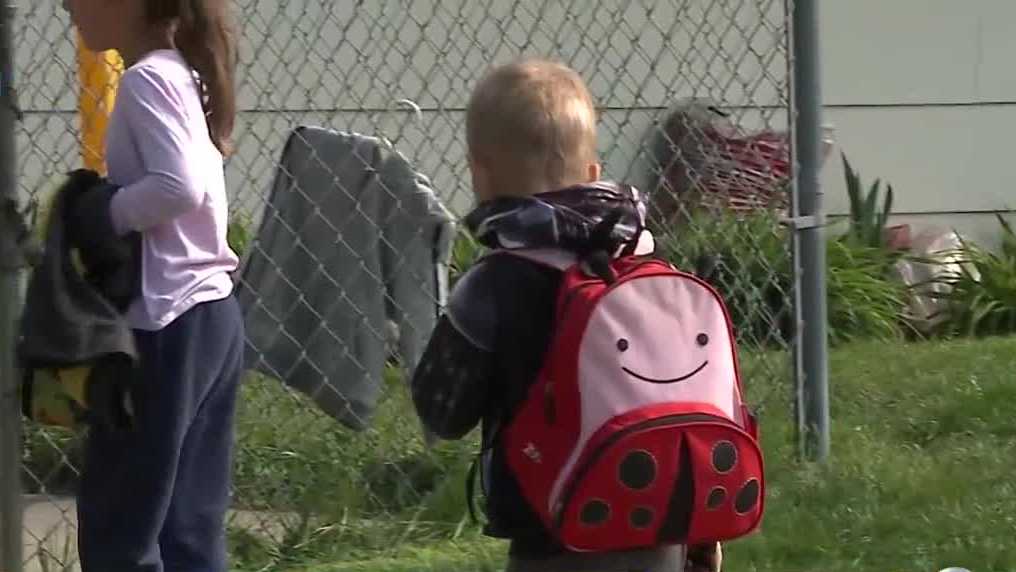“Game-changing” and “transformative.” That’s how state officials and advocates for children with developmental disabilities describe the new Medicaid waiver. Starting this week, the Nebraska Department of Health and Human Services will begin notifying 850 families currently on the developmental disability waiting list that they qualify for the new family assistance waiver, which helps children with intellectual or developmental disabilities live at home. “This announcement is huge for the state of Nebraska,” said Tony Green, director of the Department of Health and Human Services’ Division of Developmental Disabilities. The waiver allows children to access Medicaid and gives families up to $10,000 a year to cover other expenses. “This waiver gives children from birth to age 21 the opportunity to receive in-home services while living in their parents’ home while they wait for a larger waiver,” Green said. “I’m just ecstatic,” said Edison McDonald, executive director of the Nebraska ARC. “This could save money on everything from adaptive technology to day rehabilitation services for children. It also gives them access to physical therapy, occupational therapy and speech therapy,” McDonald said. Currently, about 2,000 people in Nebraska are on the waiting list to get these services, and it could take up to eight years. “It’s scary to have a call from a family who is desperate and in need because their child needs medical care,” McDonald said. The program was made possible by a bill sponsored by state Sen. Machaela Cavanaugh that passed last year. The bill requests $2 million in annual state funding. This would allow the Department of Health to tap an additional $10 million from federal funds and $6 million from federal ARPA funds. “If we act a little now, we could save a ton of money in the future, potentially more than $100,000 per child,” McDonald said. Green said the pathway to Medicaid eligibility is important for families. Of the 850 families, 500 are not currently eligible for Medicaid. “This really has a big impact on families who have large out-of-pocket costs when insurance companies are not going to cover the full cost of treatment or surgery or interventions that may be needed,” Green said. Green and advocates say while it won’t be as much as the full DD waiver, it will get help sooner for many families. “This is probably the biggest change our disability system has seen since about 1990,” McDonald said. Click here for the latest headlines from KETV NewsWatch 7.
Lincoln, Nebraska —
A “game changer” and “transformative” is how state officials and advocates for children with developmental disabilities are describing the new Medicaid waiver.
Starting this week, the Nebraska Department of Health and Human Services will begin notifying 850 families currently on the developmental disability waitlist that they qualify for a new family assistance waiver.
We help children with intellectual and developmental disabilities live at home.
“This announcement is huge for the state of Nebraska,” said Tony Green, director of the Department of Health’s Division of Developmental Disabilities.
It would allow the child to qualify for Medicaid and give the family up to $10,000 a year for other expenses.
“This waiver allows children from birth to age 21 the opportunity to receive in-home services while living in their parents’ home while they wait for a larger waiver,” Green said.
“I’m just ecstatic,” said Edison McDonald, Nebraska ARC Executive Director. “This will help with the costs of everything from adaptive technology to child day rehabilitation services. It also means kids will have access to physical therapy, occupational therapy and speech therapy.”
McDonald said there is currently a waiting list of about 2,000 people in Nebraska to receive such services, and it could take up to eight years.
“It’s horrifying when you get calls from desperate families who need medical care for their children,” McDonald said.
The program was made possible by legislation introduced by state Sen. Machaela Cavanaugh and passed last year.
The bill called for $2 million in annual state funding, which would allow DHHS to raise an additional $10 million in federal funds and $6 million from federal ARPA funds.
“By taking small actions now, we can realize enormous cost savings that could translate into savings of more than $100,000 per child in the future,” McDonald said.
Green said the pathway to Medicaid eligibility is important for families: Of the 850 families, 500 are not currently eligible for Medicaid.
“This is going to have a really big impact on families who will be faced with large out-of-pocket expenses if their insurance company doesn’t cover the full cost of treatment or surgery or any intervention that may be needed,” Green said.
Green and advocates both say that while it doesn’t provide as much coverage as the full DD waiver, it would get the aid to many families sooner.
“This is probably the biggest change our nation’s disability system has seen since about 1990,” McDonald said.
For the latest headlines from KETV NewsWatch 7, click here

